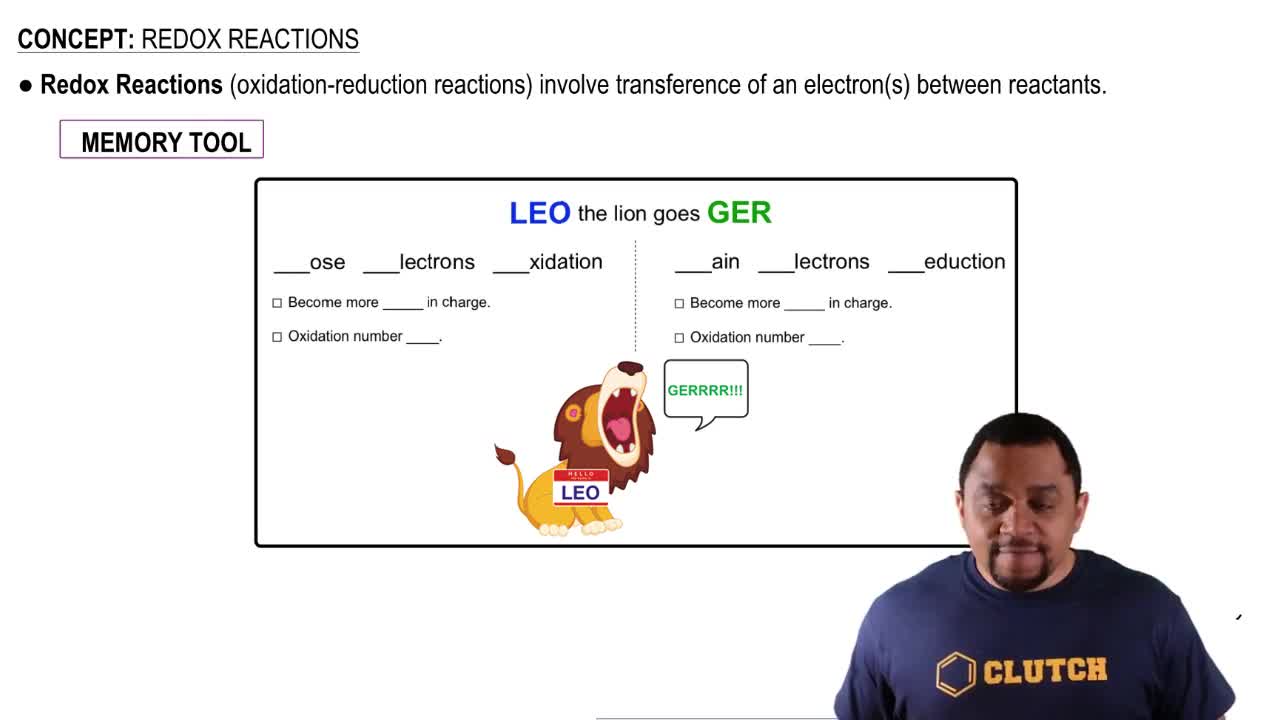Which element is oxidized, and which is reduced in the following reactions? (a) N2(g) + 3 H2(g) → 2 NH3(g)

Which of the following are redox reactions? For those that are, indicate which element is oxidized and which is reduced. For those that are not, indicate whether they are precipitation or neutralization reactions. (a) P4(s) + 10 HClO(aq) + 6 H2O(l) → 4 H3PO4(aq) + 10 HCl(aq) (b) Br2(l) + 2 K(s)→ 2 KBr(s) (c) CH3CH2OH(l) + 3 O2(g) → 3 H2O(l) + 2 CO2(g) (d) ZnCl2(aq) + 2 NaOH(aq) → Zn(OH)2(s) + 2 NaCl(aq)
 Verified step by step guidance
Verified step by step guidance
Verified video answer for a similar problem:
Key Concepts
Redox Reactions

Oxidation and Reduction

Types of Reactions

Which element is oxidized, and which is reduced in the following reactions? (b) 3 Fe(NO3)2(aq) + 2 Al(s) → 3 Fe(s) + 2 Al(NO3)3(aq)
Which element is oxidized, and which is reduced in the following reactions? (c) Cl2(aq) + 2 NaI(aq) → I2(aq) + 2 NaCl(aq) (d) PbS(s) + 4 H2O2(aq) → PbSO4(s) + 4 H2O(l)
Write balanced molecular and net ionic equations for the reactions of (a) manganese with dilute sulfuric acid (b) chromium with hydrobromic acid (c) tin with hydrochloric acid (d) aluminum with formic acid, HCOOH.
Write balanced molecular and net ionic equations for the reactions of (a) hydrochloric acid with nickel (b) dilute sulfuric acid with iron
Write balanced molecular and net ionic equations for the reactions of (c) hydrobromic acid with magnesium (d) acetic acid, CH3COOH, with zinc.
